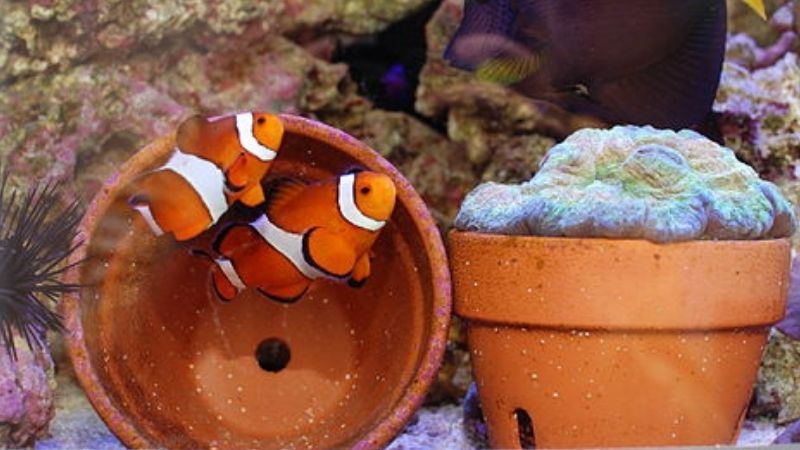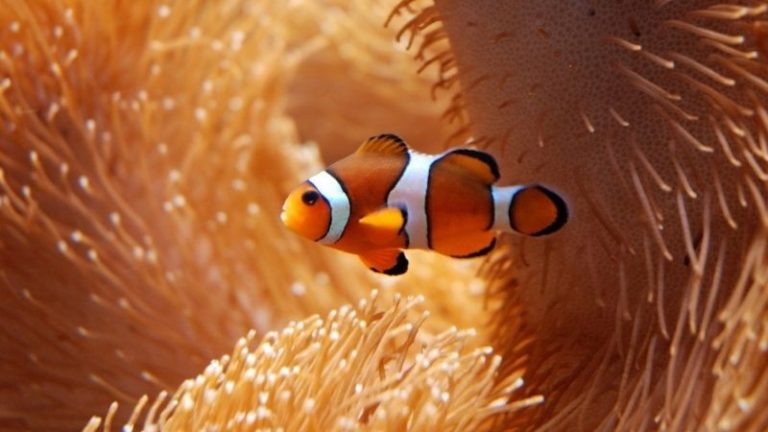Pregnant Clownfish
Pregnant clownfish have become a popular topic among aquatic enthusiasts and hobbyists alike. The idea of these tiny creatures carrying life inside of them is fascinating and charming. As a result, many people have taken an interest in knowing more about pregnant clownfish and how to care for them. In this article, we will discuss everything you need to know about pregnant clownfish, from their target to the pain points associated with their pregnancy.
Pain Points of Pregnant Clownfish
Pregnant clownfish require meticulous care during pregnancy. While they are generally low maintenance, they can become stressed during mating and pregnancy, which can lead to various complications. These complications can range from lack of appetite to aggressive behavior towards other fish in the tank. Pregnant clownfish require isolation from other fish to ensure that they do not experience undue stress.
Target of Pregnant Clownfish
Clownfish have long been a favorite of aquarists due to their vibrant colors and friendly personality. However, many people do not realize that these tiny fish are also known for their unique reproductive habits. Male clownfish are known for their aggressive protection over their eggs and the newly hatched fry. In contrast, female clownfish are the ones who carry and lay the eggs, making them a popular choice for enthusiasts who want to witness the magical process of clownfish reproduction.
Main Points about Pregnant Clownfish
Pregnant clownfish are fascinating creatures that are both low maintenance and rewarding to care for. However, like any other animal, they require proper care and attention during pregnancy. It is essential to provide them with isolation, clean water, and a stress-free environment to ensure a successful pregnancy. Moreover, it is crucial to provide them with high-quality food and supplements to help them carry healthy fry.
Pregnant Clownfish and the Mating Process
Clownfish mating is a fascinating process that fascinates many aquarists. The mating process involves the male and female clownfish performing courtship dances before laying eggs. The male clownfish guards the eggs until they hatch, which usually takes around ten days. After hatching, the fry remain under the care of the male clownfish until they can swim freely.
It is essential to provide pregnant clownfish with a healthy diet. A nutritious diet is essential for the healthy growth of the fry. Moreover, maintaining a stress-free environment while breeding is essential to ensure that the eggs are hatched successfully and fry are born healthy.
How to Care for Pregnant Clownfish
Pregnant clownfish require extra care, as they can become highly territorial and aggressive during pregnancy. Moreover, pregnant clownfish are prone to stress during pregnancy due to changes in their hormones and physical state. Therefore, it is essential to provide them with isolation from other fish to ensure that they do not experience undue stress.
It is also essential to maintain a clean and stress-free environment to help keep your pregnant clownfish healthy. Moreover, providing them with high-quality food and supplements can help ensure their healthy development. Supplementing their diet with live foods such as brine shrimp or plankton can also help provide them with essential nutrients that they may not receive through regular fish food.
Conclusion
In conclusion, pregnant clownfish are fascinating creatures that can provide endless hours of enjoyment to aquarists. They require proper care and attention during pregnancy, including isolation, clean water, and high-quality food. By following these guidelines and providing them with a stress-free environment, you can help ensure the healthy development of their fry and the overall success of their pregnancy. So, if you plan on adding a pregnant clownfish to your aquarium, remember to follow these essential guidelines to provide them with the best care possible.
Question and Answer
1. How long does it take for a pregnant clownfish to lay eggs?
A female clownfish can lay anywhere from 100 to 1,000 eggs at a time. It takes around two weeks for the eggs to hatch after they are laid.
2. Can you keep a pregnant clownfish with other fish?
No, it is not advisable to keep pregnant clownfish with other fish. They can become highly territorial and aggressive during pregnancy, leading to stress and complications.
3. What is the lifespan of a clownfish?
On average, clownfish can live for 3-5 years. With proper care, they can sometimes live up to 10 years.
4. What should I feed my pregnant clownfish?
Pregnant clownfish require a nutritious diet that includes high-quality fish food, live foods such as brine shrimp or plankton, and supplements to help ensure healthy development.
Gallery
How To Know If My Clownfish Is Pregnant?

Photo Credit by: bing.com / clownfish
I Think My Clown Is Pregnant!!! Her Belly Is Gigantic : ReefTank

Photo Credit by: bing.com /
Are My Clownfish Pregnant? | REEF2REEF Saltwater And Reef Aquarium Forum
Photo Credit by: bing.com / clownfish pregnant reef2reef swollen wrong something
Pregnant Clownfish

Photo Credit by: bing.com /
Pregnant Clownfish

Photo Credit by: bing.com /